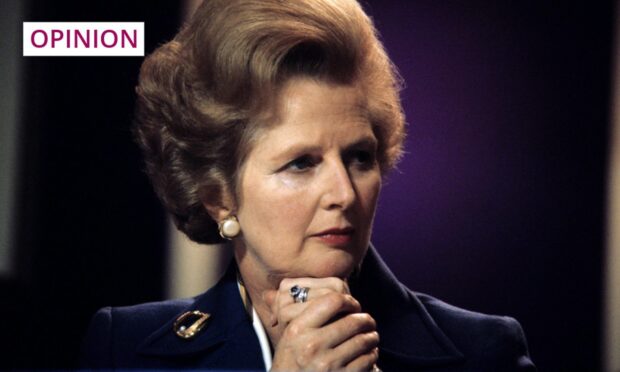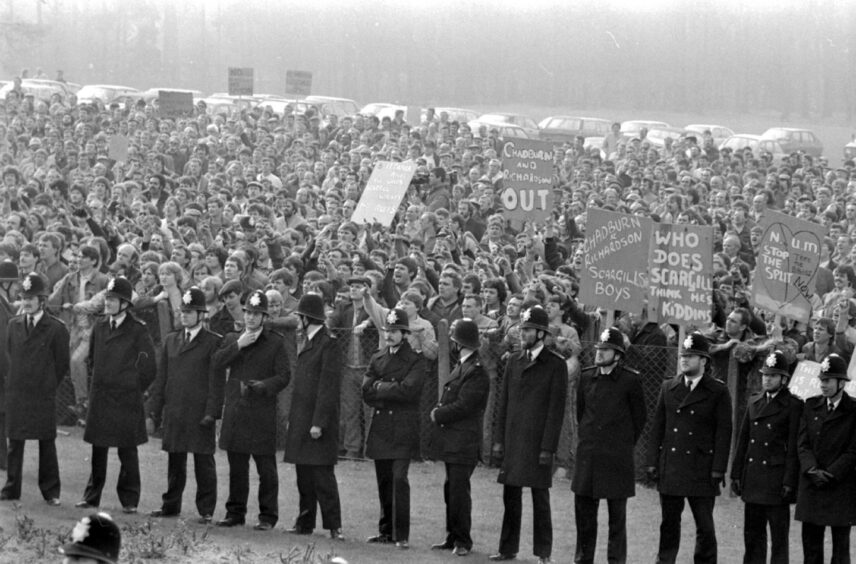Forty years ago, Margaret Thatcher declared war on the miners – and I found myself on the frontline of a battle that would change this country forever and not for good.
As a young reporter, I was assigned to cover the picket line at Bilston Glen, the colliery on Edinburgh’s doorstep where the local mining community had come out en masse in support of Arthur Scargill’s national strike call.
The early days were innocuous enough. A handful of miners having a bit of banter with cops and a bit of shouting at a few cars and vans coming and going around shift change times, early in the morning or mid-afternoon.
But as the national strike became uglier and darker – as real battles broke out at places like Orgreave – so too did the scenes at Bilston Glen become nastier.
Within weeks it had shifted from a genial ‘mind how you go, now’ chat to pitched brawls as cops lined across the road to stop hundreds of furious miners trying to get at the strikebreakers – the ‘scabs’ – who were keeping the mine working.
There was an ideological battle going on between Scargill and Thatcher and the poor miners were the pawns in the middle.
Not just the miners, but their families and their community. They knew if they lost, they would lose everything. Their livelihoods, their way of life. So of course they fought hard to save it.
It was frightening to see. The mass charge of angry miners into an unyielding police line. The missiles – bottles, sticks, stones – being hurled at the cops. The flying fists and boots, on both sides, as the two sides tussled.
Every day at shift change, a new battle, more people hurt, more people arrested, more lives ruined.
This was a community at war with the National Coal Board and Thatcher’s government, slowly starved of wages and money to feed their kids. And it was at war with itself as scabs and strikers, once friends and neighbours, were locked in bitter hate and venom.
At the end of the day, the miners were beaten. They marched back to work with their heads held high, but their hearts broken. They knew what the future held.
There is no mine now at Bilston Glen, just a run-of-the-mill soulless, industrial estate.
There are no miners or their families. That community, that industry, is long-vanished.
Beating miners gave Thatcher the chance to strip out heavy industry
Defeating the miners gave Thatcher free reign to strip out traditional heavy industry, roll back on hard-fought union rights, all while declaring there is no such thing as society.
She ushered in an era where the ideals of community, compassion and dignity were seen as weak and unnecessary. She created a nation of good little consumers and capitalists.
It’s a direct line from 1984 to where we are now, where profit for the wealthy is everything, ordinary people are nothing and Westminster believes itself unaccountable.
It wasn’t just the miners who lost. We all did.
Scott Begbie is a journalist and editor, as well as PR and comms manager for Aberdeen Inspired


Conversation